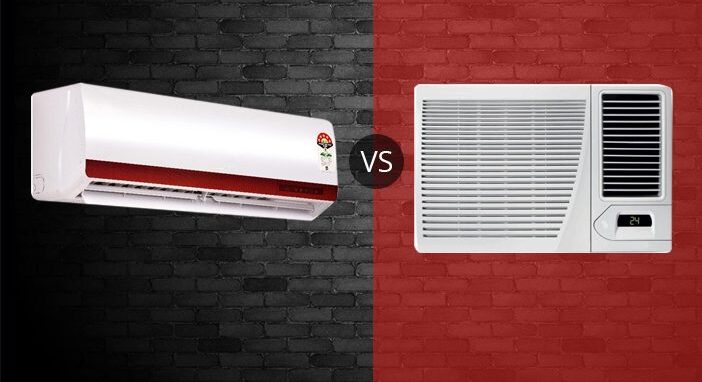Split AC vs. Window AC for your summer cooling needs

As temperatures rise and the scorching summer months approach, the debate between Split ACs and Window ACs gains momentum among consumers. These two primary types of air conditioners offer distinct features and benefits, leaving many uncertain about the best choice for their cooling needs. To aid consumers in making an informed decision, we delve into the key differences between Split ACs and Window ACs.
Split AC:
Design: Comprising indoor and outdoor units, Split ACs offer versatility in installation.
Cooling Capacity: Known for their ability to cool larger rooms effectively.
Energy Efficiency: Generally more energy-efficient compared to Window ACs, resulting in potential long-term savings.
Noise Level: Operates quieter than Window AC units, offering a more serene indoor environment.
Installation: Requires professional installation, which can be complex and more costly.
Price: Generally more expensive upfront compared to Window ACs.
Window AC:
Design: Compact units designed to fit within window frames, offering a space-saving solution.
Cooling Capacity: Suitable for smaller rooms, offering adequate cooling in confined spaces.
Energy Efficiency: Typically less energy-efficient compared to Split ACs, potentially leading to higher electricity bills.
Noise Level: Known to produce more noise during operation compared to Split ACs.
Installation: Relatively simpler and cost-effective installation process, ideal for those on a budget.
Price: Generally more affordable upfront compared to Split ACs.
When considering between Split ACs and Window ACs, several factors merit attention:
Room Size: Opt for Split ACs for larger rooms and Window ACs for smaller spaces.
Budget: While Split ACs offer greater energy efficiency and quieter operation, Window ACs are more budget-friendly upfront.
Energy Efficiency: Those prioritizing energy savings may lean towards Split ACs.
Installation: Factor in installation complexities and costs, particularly for Split ACs.
In conclusion, both Split ACs and Window ACs offer unique advantages catering to diverse consumer preferences.
Here are some additional comments:
If you have a large room and want energy efficiency and low noise, Split AC is a good option.
If you have a small room and are on a low budget, Window AC is a good option.
You can also buy Inverter ACs which are more energy efficient.
Before buying an AC, compare different brands and models and choose the best AC for your needs.
By carefully evaluating room size, budget constraints, energy efficiency goals, and installation considerations, you can make an informed choice tailored to their specific cooling requirements. As the summer heat intensifies, selecting the most suitable air conditioning solution ensures comfort and relief from soaring temperatures.









